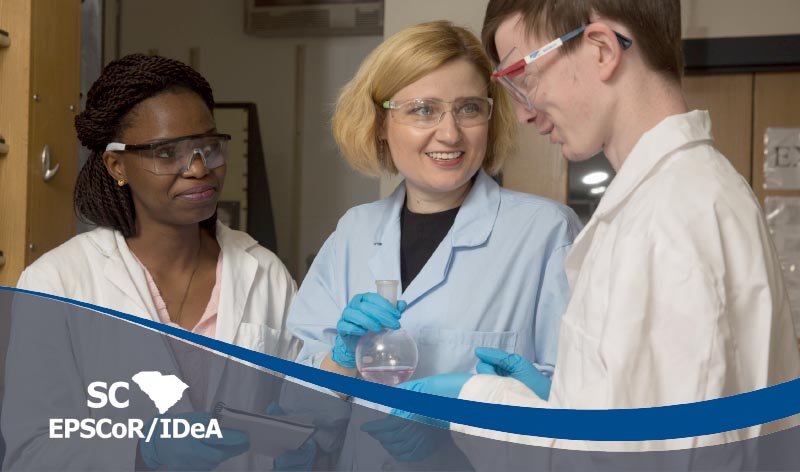Research Focus on Dr. Natalia Shustova
Smart Sponges
Although sponges are commonly known for residing in the deep sea or at the kitchen sink, Dr. Natalia Shustova's group is working on revolutionizing the term “sponge” through the engineering and design of well-defined hybrid materials known as “smart sponges.” These materials could be instrumental towards effective solar energy utilization, as one of the main challenges facing humanity today is the supply of secure and sustainable energy, especially since consumption is increasing alongside the increasing population. Though the use of metal-organic frameworks (MOFs) produced by self-assembly, there is not only the potential to reinvent the term sponge, but the possibility for a new generation of materials for efficient energy utilization. Luckily, the dirty dishes are no match for these “smart sponges” as the internal surface area of one gram of the material equals the surface area of a football field, but that is only describing one of their unique properties. Recently, the Shustova group showed that directional energy transfer in these materials could be achieved by mimicking the behavior of the natural photosystem. A brief overview for one part of this project can be found on YouTube through a video contest. This research effort is supported through a NSF CAREER Award. While a traditional sponge can only be used for one application – cleaning – these “smart sponges” are multifaceted, giving credence to its name. Currently the Shustova research group is also addressing the necessity of nuclear waste storage and sequestration through the use of these “smart sponges,” studies of which are supported through the recently established EFRC center. Based on her efforts in the field of metal-organic materials, Dr. Shustova received the Sloan Research Fellowship and Cottrell Scholar Award, which are extraordinarily competitive awards, granted for early career scientist from the United States and Canada.
As the common sponges are most comfortable in a watery environment, these “smart sponges” are not restricted to the lab though, as the projects in the Shustova group aim to integrate the development of the Carolinian Women in Science (Wi-Sci) Supportive Network, which addresses the workforce demand in science, technology, engineering, and mathematics (STEM). The proposed Wi-Sci initiative integrates educational and research opportunities for female students in STEM disciplines by establishing intercollegiate scientific exchanges and collaborations, providing and promoting multidisciplinary research opportunities for female scientists in different research groups, and organizing educational workshops focused on attraction and retention of women in the STEM disciplines. This Wi-Sci program was initiated due to the essential support from the SC EPSCoR Program.
Project Title: NSF CAREER: Well-Defined Hybrid Materials as a Versatile Tool to Study Energy Transfer Processes Click to read abstract.
Click download PDF of Research Focus on Dr. Natalia Shustova
July 23, 2017